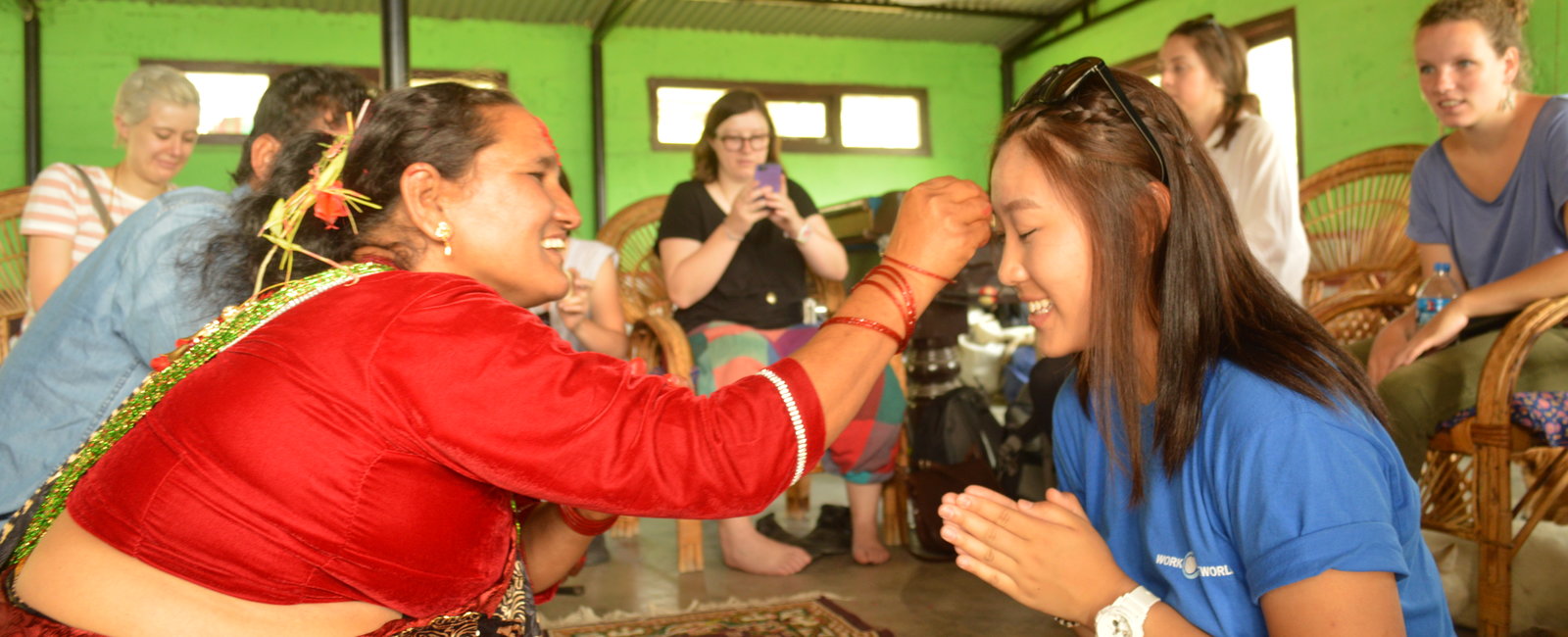How much you take on your placement will probably depend on whether you have plans for after your placement with Work the World. As I was going travelling after my work placement, I wanted to fit everything into one rucksack. I managed to take everything I needed for 8 weeks into one rucksack (which weighed in at 14kg), so travelling light is definitely do-able! Below I have listed what I took with me.
The most essential item for me (other than my passport and money) was a head torch. This was absolutely invaluable as there were frequent power-cuts in Dar es Salaam, but wearing a head torch allows you to have both hands free while pointing the light in precisely the direction you are looking in.
It is the only thing I bought especially for my trip (I managed to borrow a mosquito net) and it was well worth the money. I have also mentioned the ‘list of useful contact numbers/information’ I took - on mine I had phone numbers of family members and friends from home, insurance contact number and policy number (for travel and indemnity insurance), my flight numbers and confirmation/booking reference, the phone numbers given to me by Work the World and their UK office, my passport number, NI number, driving licence number, bank telephone number, card number, sort code and account number and the address of the Work the World House in Dar.
I could have taken even less than I did, as you can buy many things in the nearby Oyster Bay shopping centre or in Dar es Salaam itself. There are always things left by other students in the house so it won’t be the end of the world if you run out of something. Things that are expensive to buy (so I would recommend you take) include toiletries and insect repellent (I got through one can every 2-3 weeks). Work the World provides all your food and washing powder. There are no guarantees that scrubs will be provided, however I found there were plenty left over from previous students in the house.
Things to pack:
- List of useful contact numbers/information
- Passport
- Yellow fever vaccination certificate/record of other vaccinations you’ve had
- Money (as much cash as you are comfortable carrying, in either £s or U.S. $ -both are easily exchanged for Tanzanian Shillings)
- Money belt
- Debit card (inform your bank you are going and make sure you take a contact number for them just in case it doesn’t work when you arrive).
- Photocopies of your passport, debit card, yellow fever vaccination card and any other official documents you take with you (try to pack a few copies in different places)
- Camera
- Mobile phone (unlocked, so could use a Tanzanian sim card, which you can buy extremely cheaply when you arrive). This was also my alarm clock
- MP3 player/iPod (I didn’t actually take one, but most people did)
- Padlock for the safe
- Earplugs and eye mask (essential for a good night’s sleep/daytime nap!)
- Scrubs/other clothes for placement
- Shoes for placement (e.g. pumps - something comfortable that covers your whole foot is best)
- Stethoscope, pen torch, gloves, pen and paper
- A small book for placement, e.g. Oxford handbook of clinical medicine –although I didn’t really use it much. I also took my BNF but didn’t use that except in the rural clinic. Hospitals and clinics really appreciate it if you can leave BNFs/books behind though.
- Sunglasses and hat
- Clothes for wearing in the house/at weekends/evenings
- Underwear and socks (I took 7 sets which was fine, just had to wash them regularly)
- Nightwear (I took 2 sets –it is very warm at night so just a vest and shorts is fine)
- 1 pair of flip flops for wearing around the house, trainers/other shoes good for walking in.
- Swim wear
- Towel
- Toiletries (the usual - toothbrush, toothpaste, soap, shampoo, conditioner, deodorant, comb, nail clippers)
- Insect repellent
- Sun cream and after sun
- First aid kit (very basic: plasters, pain relief, insect bite relief cream, anti-diarrhoea tablets)
- Alcohol hand wash gel (both for the hospital and when on day trips)
- Small rucksack for day trips/hospital (can use as hand luggage bag on way out)
- Note book to write down your experiences/names of good places to stay/eat/visit etc.
Items not necessary if staying in WtW house the whole time, but might need if travelling:
- Mosquito net (most hostels/hotels have these, but having your own is useful just in case)
- Sleeping bag liner (I had a sheet folded in half with two edges sewn together)
- Washing detergent/soap for clothes (if travelling for more days than you have clothes)
If you have enough luggage allowance, you can also take donations for the hospital(s). However, if you have been fundraising and have money to spend on donations it might be easier for you to buy equipment once you’ve arrived. For me it was really easy for me to buy all kinds of medical equipment in Dar es Salaam. I would recommend checking with Work the World before you go.
Read more about our elective placements in Tanzania.





